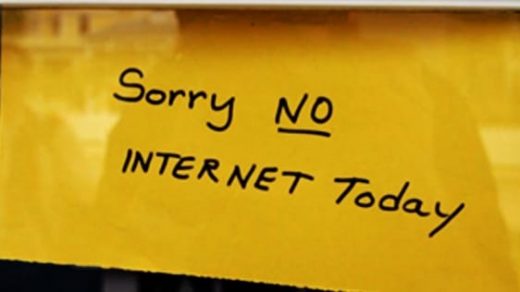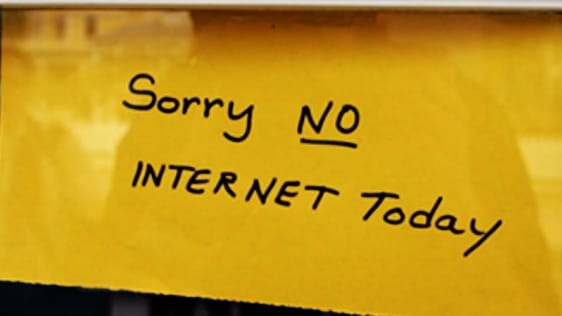Few Options Remain To Stop Trump’s FCC From Scrapping Net Neutrality
With FCC chairman Ajit Pai’s plan to dismantle net neutrality protections now official, internet regulation has joined healthcare and climate change among the big areas where the Trump Administration is aggressively dismantling Obama-era policies. In the latter two cases, cities and states have some leeway to go against Washington. States administer their own health programs for low-income residents, for instance; and some, like California, are talking about radically extending them. Meanwhile states and cities are uniting to make their own climate change policy pledges.
It may not be so easy to get around the administration’s internet policies. Ars Technica reports that, along with scrapping Obama-era regulations, FCC officials led by Pai plan to preempt states and cities from enacting their own, stricter polices, to prevent things like “throttling,” or limiting bandwidth, for certain content if content providers (or consumers) don’t pay extra.
“I don’t think states have the authority to require network neutrality, so once the Trump administration guts the open internet, it will be up to individual ISPs,” writes Christopher Mitchell from the Institute for Local Self-Reliance, in an email to Fast Company. He heads the organization’s Community Broadband Networks project, which encourages municipal-run networks as an alternative to major private ISPs such as Comcast and Verizon.
A big precedent on the side of big ISPs and the FCC’s Republican majority is the so-called Vonage Order of 2004. Back when voice over internet protocol was new technology, the state of Minnesota attempted to regulate Vonage’s VoIP service the same as it would traditional phone landlines. The FCC ruled that Minnesota didn’t have that authority, because VoIP is an interstate service. Some phone calls might stay within the state, but there’s no way to separate that part of Vonage’s business from the part that does cross state lines. An appeals court upheld the ruling in 2007.
Internet service is inherently interstate in nature, so the Vonage Order provides powerful legal ammunition to the big ISPs. Preemption, in fact, will be a continuing theme with Trump’s FCC. At the Mobile World Congress in San Francisco in September, Republican FCC commissioners Brendan Carr and Michael O’Rielly were adamant that the FCC be able to preempt local zoning regulations for situating the hundreds of thousands of new transmitters needed for 5G wireless networks.
But before preemption comes the issue of whether states and municipalities even have the political will to act. Since Congress overturned Obama-era rules that prevent ISPs from collecting and selling usage data in March, over 20 states have considered their own privacy legislation. Only three—Colorado, Montana, and North Dakota—have succeeded in enacting anything, with varying degrees of effectiveness, according to tally kept by the National Conference of State Legislatures. Much of the legislation has stalled, even in liberal stalwart states like California and New York. Seattle also acted by setting privacy standards for cable ISPs. These few privacy measures that have been enacted, and any to follow, could be in jeopardy now.
There is an “if you can’t ’em join ’em” possibility for local governments: build your own ISP. The Community Broadband Networks project that Mitchell leads tracks over 500 communities with publicly owned fiber-optic or cable internet networks. Over 110 of these communities have publicly owned networks offering speeds of at least one gigabit per second. It’s not all rosy for public broadband, though. Nineteen states have some types of policies that ban or somehow discourage municipal networks, according to Mitchell’s project.
Small Business To The Rescue?
As with global warming policy, there is some hope among liberal activists that businesses can lead where government won’t or can’t. A unique example is Credo Mobile, a combination wireless company and liberal activist organization that’s been advocating on net neutrality and a bunch of other issues. “We are committed to doing everything we can to fight for both Title II net neutrality as well as broadband privacy protections,” wrote its deputy political director Josh Nelson in an email.
Christopher Mitchell is optimistic about economic forces working in net neutrality’s favor among smaller providers. One is competition. The fact that an ISP is competing in a market means it has to be sensitive to what customers want.
The other factor is that small ISPs don’t have the market power to push people around. “If you are a small ISP and you want to call Netflix to charge them more for fast lanes, good luck! No one is going to return that call,” says Mitchell. “But if you are Comcast, Netflix has to pay attention.”
But Dane Jasper, CEO of Sonic, a smaller ISP that’s a darling of net neutrality activists, is less sanguine. “There are some, generally smaller ISPs who support net neutrality, and some who do not,” writes Jasper in an email, noting for instance wireless ISPs who might be siding with Pai in order to save money. “In my experience, this is likely to be because they have already been throttling video rather than upgrading their networks,” he says. (Major wireless carriers reduce the resolution of streaming HD video on the fly to avoid taxing their capacity.)
The FCC is scheduled to vote on the order scrapping net neutrality regulations on December 14. You can expect a lot of public debate and protest in the meantime.
Fast Company , Read Full Story
(35)



